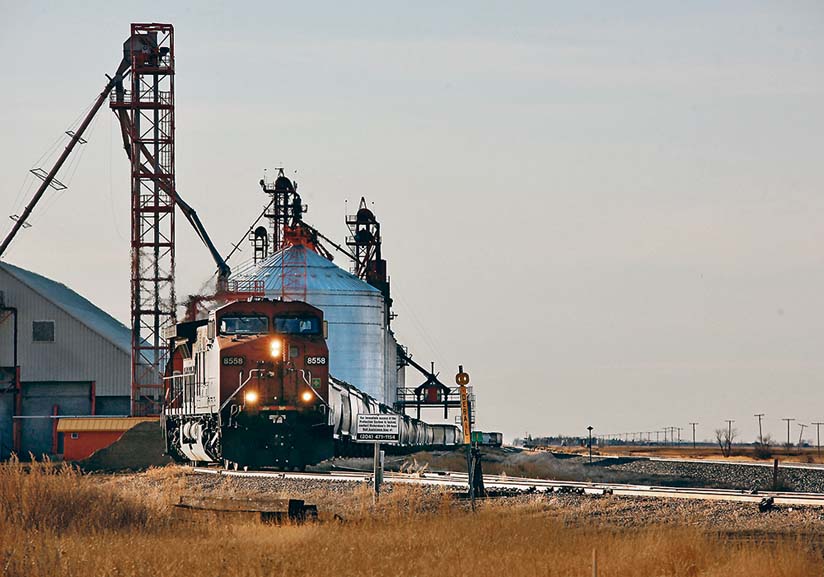

Canada - Appeals court says CTA didn't inform CP of the changes it made to how maximum revenue entitlements are calculated.
A recent ruling by the Federal Court of Appeal has determined that the Canadian Transportation Agency (CTA) did not act fairly when it considered factors that
will influence Canadian Pacific Railway's (CP) Volume Related Composite Price Index (VRCPI) for the 2020-2021 crop year.
The VRCPI is part of complex formula used to determine maximum revenue entitlements (MREs), also known as the revenue cap, which is the maximum revenue that a
Class 1 railway can earn in Canada from moving western Canadian grain to market along federally regulated railway routes.
"I find that the process followed by the CTA lacked procedural fairness," wrote Federal Court of Appeal judge J.A. Denis Pelletier in an 9 Apr 2021
decision.
"As a result, the CTA's decision should be quashed."
The Federal Court of Appeal ruling centres on a CTA decision about how CP's cost of capital should be determined.
Cost of capital is one of several factors that's included in VRCPI calculations.
In a late 2020 decision, CTA determined that "general purpose debt," including debt incurred for share buyback programs, should be included in the
railway company's cost of capital calculation.
The CTA decision was made without procedural fairness because CP was not properly consulted.
CTA officials consulted with CP's main rival Canadian National Railway (CN) on the issue, but CP was not afforded a similar opportunity.
The VRCPI and the MRE formula were introduced as a way to regulate railway earnings following the elimination of the statutory Crow's Nest freight
rate.
In its appeal, CP argued that debt related to non-rail activities, such as share buyback programs, should not be included in regulatory accounting
procedures.
CP also argued that debts incurred for share buybacks were incurred by CP's parent company, CPL, and not by CP itself.
CPL is not a federally regulated entity.
In its appeal, CP stated that the CTA's consideration of general purpose debt and its inclusion in the railway company's cost of capital calculation would
represent "a significant change to CP's regulatory financial statements and might materially impact CP's regulatory cost of capital."
In essence, CTA made its decision on cost of capital before informing CP that a decision was being considered.
The reasons for Pelletier's ruling were included in a 34 page ruling that cited almost 20 legal precedents and referenced more than 25 additional documents,
including previous CTA decisions, federal legislation, and sections of relevant legal documents and corporate filings.
"It is not this court's function to identify what is, or what is not, to be included in a railway's cost of capital when that issue will presumably be the
subject of consultation between CP and the CTA," Pelletier wrote.
"All this court can do is to set aside the decisions made in breach of the duty of fairness. I would therefore quash the agency's determination of CP's
cost of capital for the 2020-2021 crop year and return the matter to the agency with the direction that CP's cost of capital for the 2020-2021 crop year be
determined on the same basis as it was for the 2019-2020 crop year."
In an 19 Apr 2021 email to The Western Producer, CP described the quashed CTA decision as significant.
"In 2020, the CTA made a significant change to how it would calculate the regulatory cost of capital for CP and CN for the 2020-2021 crop year," CP
wrote.
"CP filed an appeal with the Federal Court of Appeal to challenge the CTA's 2020 decision on a number of grounds and on 9 Apr 2021 the Court ruled in CP's
favour."
Brian Cross.
(because there was no image with original article)
(usually because it's been seen before)
provisions in Section 29 of the Canadian
Copyright Modernization Act.
